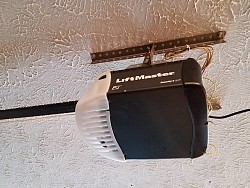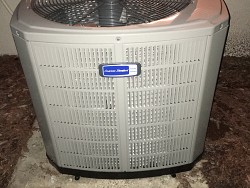How to Combat Condensation on Your Windows
 Oh no! You just installed energy-saving (and expensive!) new windows, and now all of a sudden you see that they’re covered with drops of water. Even worse, this condensation is dripping down your walls. The problem is that your double glazing may be too efficient for its own good. Both double glazing and today’s super home insulation can actually contribute to your condensation problem by restricting the circulation of air. And unfortunately, unchecked condensation could easily lead to even bigger headaches like mold, peeling paint, and rotten wood, which threaten the structure of your home.
Oh no! You just installed energy-saving (and expensive!) new windows, and now all of a sudden you see that they’re covered with drops of water. Even worse, this condensation is dripping down your walls. The problem is that your double glazing may be too efficient for its own good. Both double glazing and today’s super home insulation can actually contribute to your condensation problem by restricting the circulation of air. And unfortunately, unchecked condensation could easily lead to even bigger headaches like mold, peeling paint, and rotten wood, which threaten the structure of your home.
Here are 13 tips to combat issues with condensation.
- Window condensation’s worst enemy is ventilation. Ventilate your house or apartment to allow moisture-laden air (from cooking, bathing, and so on) to escape outdoors.
- Your windows should be made with air vents. Check to make sure that these are not blocked by dirt or debris.
- Open the windows whenever possible. In the depths of winter, operate a standing or ceiling fan. This is extra important in high-humidity “wet” rooms of the home such as the laundry, kitchen and bathrooms.
- Don’t block windows with heavy draperies or furniture. Both of these impede air circulation. Before you go to bed, try opening the curtains or blinds in public rooms such as your living room and kitchen.
- Lower your HVAC thermostat to no more than 68 degrees. Heat all the rooms of your home evenly.
- Use a stove hood that vents vapor to the outside of your home, as opposed to the type that merely removes odors from the atmosphere, when you prepare meals. Cover pots when cooking to minimize filling your kitchen with steam.
- Keep your bathroom door closed so that humid air does not escape into the rest of the house. Take shorter showers (this will also have the benefit of conserving water). Open the window before taking a bath or showering, or run an extractor fan. Leave the fan on for an additional 15 minutes after your shower is finished.
- In the laundry room, dry wet clothes promptly. Ensure that your clothes dryer vent is properly sealed and directed to the outdoors.
- Minimize use of your fireplace, which gives off moisture as it burns.
- Reduce the number of houseplants that you keep indoors during the winter, or place them in a special sunroom or enclosed porch.
- Maintain your HVAC system in good shape. Inspect your vents regularly to make sure that they are not blocked and have periodic checkups to verify that the system is working efficiently. This is especially important when your home heating is powered by humidity-producing natural gas.
- Turn off the humidification feature in your HVAC system during the cold weather season. Your goal should be an indoor relative humidity level of below 40 percent (preferably 25-35 percent in winter) in winter, and 40-50 percent in summer.
- Purchase a home dehumidifier if the problem is particularly severe.
Laura Firszt writes for networx.com.
Looking for a Pro? Call us (866) 441-6648

Heating & cooling Average Costs
HVAC Contractors Experiences

Garage Door Opener Replacement In Brutal Winter Weather

Air Conditioner Replacement In Florida’s 85-Degree Winter Weather

Our New Concrete Sidewalk Is Just What We Were Hoping For
Top Cities Covered by our HVAC Contractors
Austin
| Boston
| Charlotte
| Chicago
| Columbus
| Dallas
| Denver
| Detroit
| Fort Worth
| Houston
| Indianapolis
| Jacksonville
| Los Angeles
| Memphis
| Nashville
| New York
| Philadelphia
| Phoenix
| Portland
| San Antonio
| San Diego
| San Francisco
| San Jose
| Seattle
| Washington


